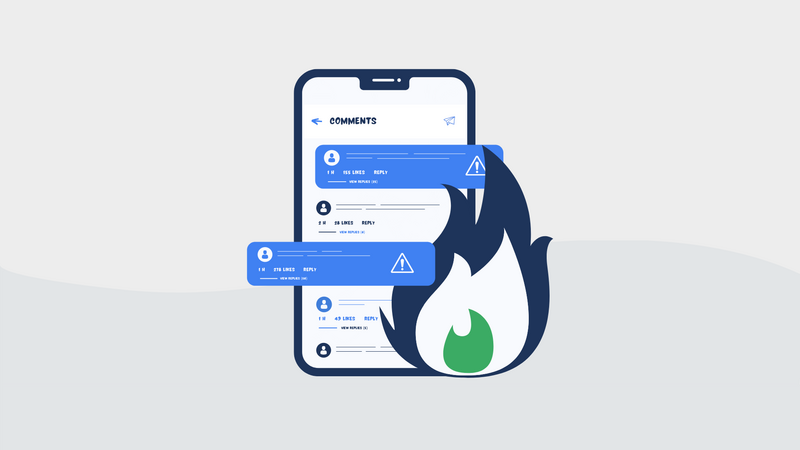
Social media has become an essential part of our daily
lives, linking us with friends, family, and the rest of the globe. It has also
evolved into an effective tool for businesses to communicate with their
clients, grow their brand, and advertise their products or services.
However, the strength of social media comes with the risk of
a crisis. A social media crisis may be defined as any circumstance that has the
potential to harm a brand's reputation and can develop for a variety of causes.
However, not every unfavourable scenario on social media is a disaster. It's
just as vital to know what doesn't constitute a social media crisis as it is to
know what does.
Consider the following scenario: a consumer leaves a bad
comment about a product on a company's social media website. The consumer
expresses discontent with their purchase and complains about the product's
quality.
While unpleasant, this is hardly a social media catastrophe.
It is a typical occurrence in the corporate sector and is a component of the
feedback process. Such input may be used by businesses to enhance their
products and services. In fact, how a firm responds to bad reviews may boost
its image by demonstrating that it values customer input and is committed to
fixing concerns.
Another example of a non-crisis social media situation is
when a corporation receives a limited amount of critical comments or postings.
Because social media platforms are public forums, it is inevitable for businesses
to get some unfavourable criticism.
A few bad remarks amid hundreds or thousands of good ones
does not constitute a problem. Businesses should check their social media sites
on a regular basis and respond to unfavourable comments quickly and professionally,
but they should not panic over a few nasty statements.
A single post by an unhappy employee voicing their
dissatisfaction, on the other hand, does not create a social media disaster.
While such a message may get notice, it does not always imply that the
company's reputation is jeopardised. Businesses must have social media policies
in place and manage such situations responsibly, but a single unfavourable post
by an employee does not constitute a crisis.
Finally, a contentious post that provokes discussion among
followers is hardly a social media disaster. Social media is a conversation and
debate platform, and it's not uncommon for messages to ignite spirited debate
among followers. As long as the conversation is civil and productive, it may
actually benefit the brand by increasing engagement and community among fans.